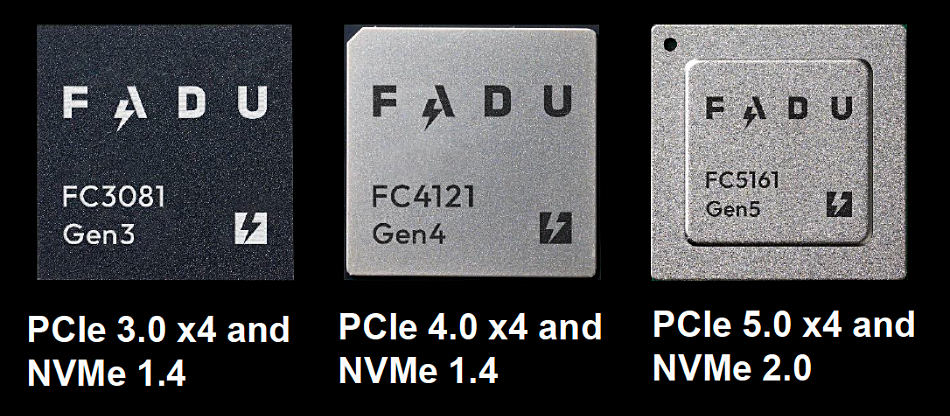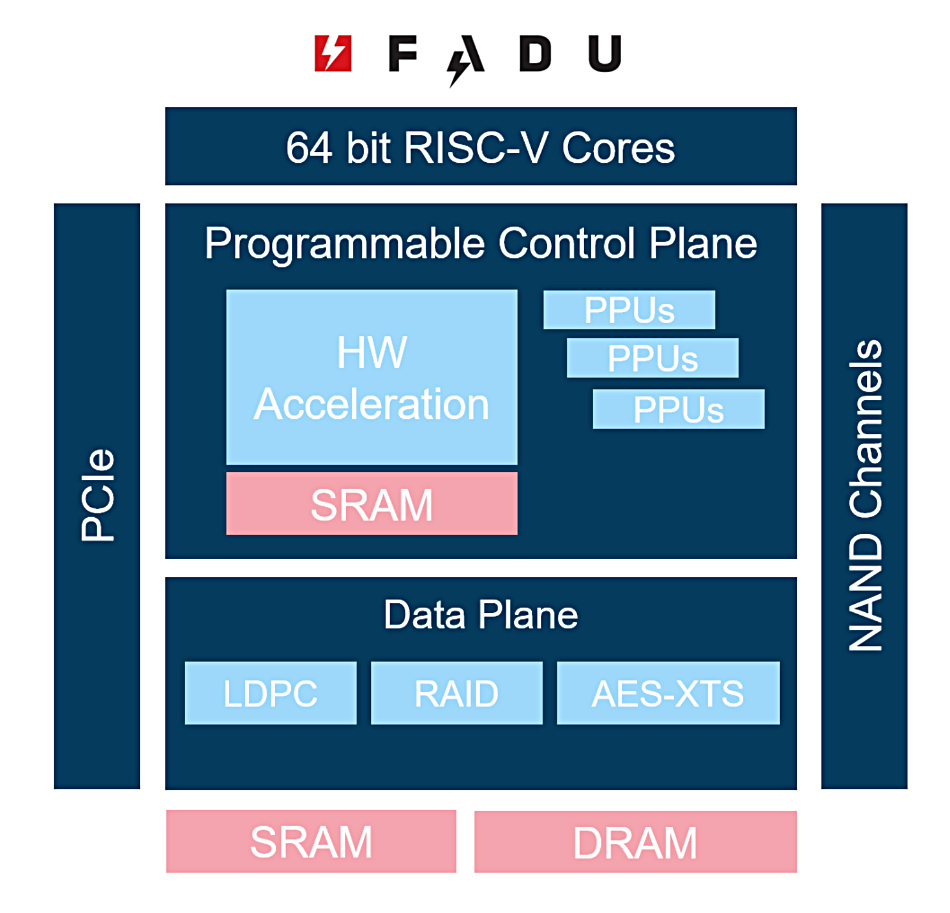Profile: FADU is a fabless semiconductor company operating out of Seoul in Korea and specializing in SSD controllers and also drives. Jonmichael Hands, its Senior Director for Product Planning, presented on the company’s technology and strategy at an A3 TechLive conference in London earlier this month.
FADU was started up in 2015. The founders were CEO Jihyo Lee, a former Bain & Company partner, CTO Ehyun Nam and COO Daekeun Lee. They wanted to develop high-performance enterprise SSD controllers that were also power-efficient.

It opened a Silicon Valley office in 2018 and business boomed as it announced three RISC-V-based controller generations tied to PCIe bus generations; BRAVO in 2020, (PCIe gen 3), DELTA in 2021 (PCIe gen 4) and ECHO in 2023 (PCIe gen 5). This led to FADU IPO’ing on KOSDAQ in August last year, raising more than $150 million. FADU is now developing a fourth SIERRA generation controller tied to PCIe gen 6 and is also working on CXL memory and switch technology devices.


Hands said that FADU has a different base controller architecture than other controller technologies. They tend to redesign their architecture when supporting PCIe bus generations with faster controller processors, with more and more processor cores. A FADU blog claims: “Traditional SSD controllers incorporate some hardware automation, but the majority of the Flash Translation Layer (FTL) and core data path reside in firmware, managed by ARM CPUs.”
FADU’s controller ASIC has 4 x 64-bit Risc-V cores augmented with a programmable control plane built with parallel RISC processing units (PPUs) and separate SRAM. This executes pipelined NVMe commands, and its design also features hardware offloading for common functions like NVMe and FTL/garbage collection.
NVMe commands are broken down and processed in a multi-stage pipeline, with each stage handled by a dedicated PPU core. FADU claims that, by splitting operations into smaller stages in a pipeline: “Each stage can be optimized independently, ensuring that only the bottlenecks are addressed, rather than overhauling the entire architecture. This yields significant power efficiency and faster adaptation across PCIe generations—from 4.0 to 6.0—without requiring major changes.”

Such pipelining enables concurrent command processing at different stages, significantly boosting throughput. There could be thousands of PPUs in a drive.
A hardware-accelerated data plane handles error correction, data protection, and encryption. SRAM is a buffer for high-throughput writes, and DRAM is utilized for FTL (Flash Translation Layer) operations.

It is currently working in its PCIe Gen 5 product and SSDs in E1.S, ES.3 and U.2 form factors, and is planning high-capacity QLC drive controllers using the PCIe gen 5 interconnect. It’s not shipping any QLC controllers at present.
FADU says its OEM controller customers include Western Digital – the SN861 has a FADU controller and is certified to support NVIDIA GB200 NVL72 system for compute-intensive AI environments – and SK hynix. It wants to expand the OEM controller partnership numbers. FADU also supplies white label SSDs to Swissbit and SMART Modular, which, in turn, supplies Lenovo. FADU is also collaborating with Meta on the development of the Flexible Data Placement NVMe standard, and made one of first implementations of the OCP Data Center NVMe SSD spec.
The company says its forthcoming PCIe 6 controller will provide up to 28GB/s (4 lanes), twice that of ECHO, and 6.9 million IOPS for random reads plus feature flexible data placement for cloud-native workloads, AI training, checkpointing, caching and database. SIERRA will support SLC, TLC and QLC up to 256 TB. It will also have up to 2x better power efficiency than FADU’s ECHO controllers. The power efficiency improvements are helped by it utilizing NVMe power states.
All-in-all FADU says it’s moving to a new phase of growth with product and customer diversification. It’s competing for controller OEM customers and also on the SSD front. Here, Phison looks to be ahead with its own brand, the high-capacity – 122 TB – Pascari line.








